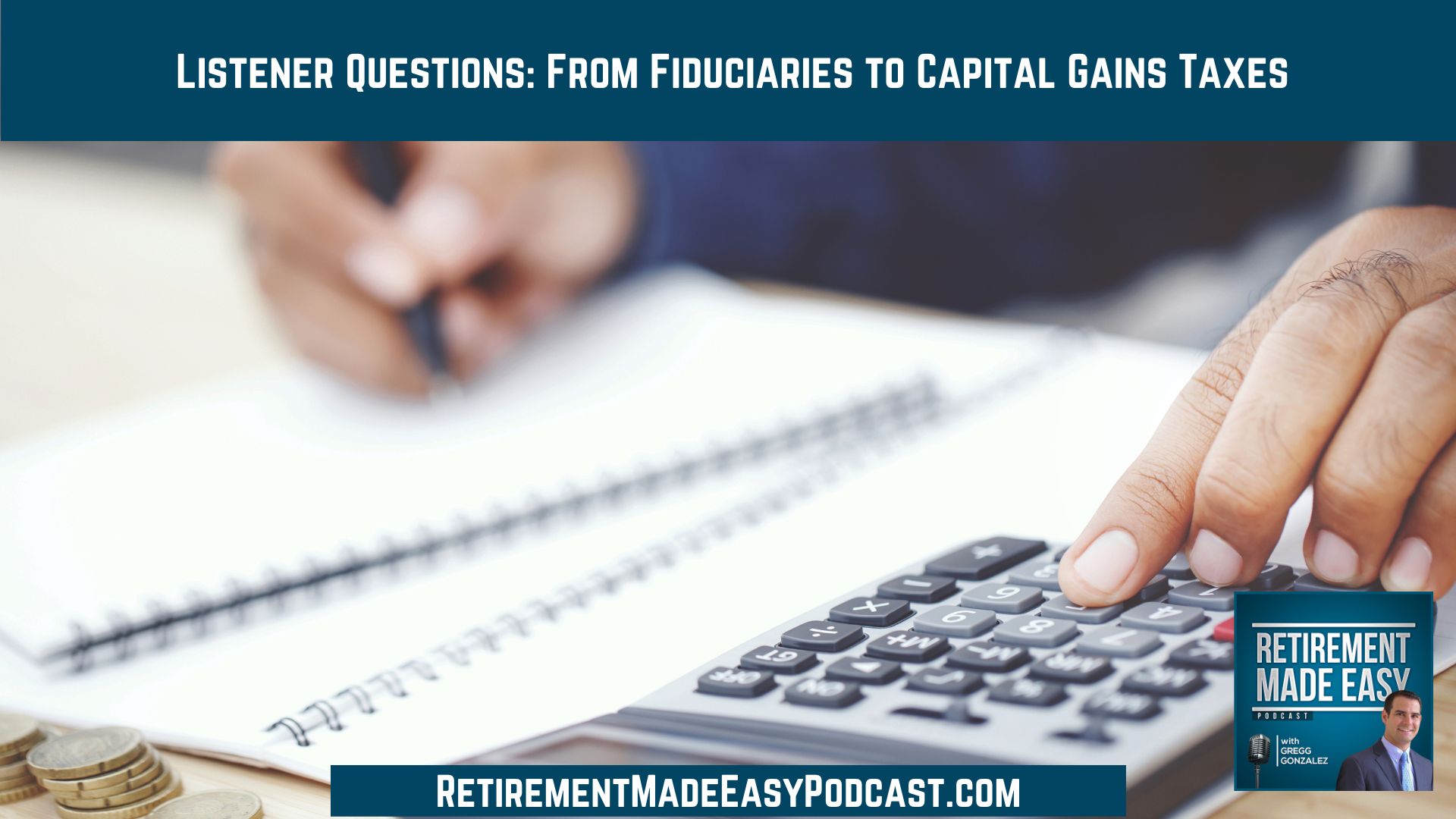
How is a fiduciary different? What can you expect to pay a CFP? How does capital gains tax work? Did contribution limits increase? In the first episode of 2023, I’m going to revisit some important listener questions from the last few months. They’re important things to remember as we enter tax planning season. Check it out!
You will want to hear this episode if you are interested in…
- [0:40] Listener Question #1: How is a fiduciary different?
- [2:29] Listener Question #2: What can you expect to pay a CFP?
- [5:01] Listener Question #3: Why won’t I work with Wells Fargo?
- [8:52] Listener Question #4: How does capital gains tax work?
- [13:38] Listener Question #5: Why do you need to find specialists?
- [17:50] Listener Question #6: Did contribution limits increase?
How is a fiduciary different?
A fiduciary is an advisor that is both legally and ethically bound to do things in your best interest. If an advisor isn’t a fiduciary, they operate under what’s called the “Suitability Standard.” What they recommend has to be suitable for you at that point in time.
Imagine you have high cholesterol and a Dr. recommends Lipitor (a brand-name drug), which costs you $300 a month. A fiduciary would recommend using a generic brand that would only cost you $9 a month. As a fiduciary, I think the generic drug is in your best interest. Lipitor IS suitable but costs you abundantly more per month.
So what can you expect to pay a CFP? Listen to hear what the average cost is per hour (and how to determine what is a good value).
How does capital gains tax work?
One of the advantages of owning a residential rental property is that you can depreciate your property over 27 ½ years. What does that mean? It reduces the amount of rental income that’s taxable. When you sell the rental property, there is depreciation recapture which will impact your taxes.
I spoke with a couple who wanted to sell their rental properties. When you’ve lived in your home for two of the last five years, there is a capital gains exclusion of up to $500,000. Let’s say this couple lived in their home for 10 years. They bought the home at $200,000 and sold it for $700,000. That’s a $500,000 gain that they won’t have to pay taxes on. However, anything above that amount will be subject to capital gains tax.
Another listener was retiring at the end of 2022 and had gained $1 million in his company stock. He plans to have no taxable income in 2023, to hit the 0% tax bracket. He was told that if he’s anywhere under the 12% tax bracket, he wouldn’t have to pay capital gains. That’s NOT correct—he will still be taxed on a portion of those capital gains.
Why you need to find specialists
Another listener, Beth, is concerned that her tax advisor (CPA) did tax prep and didn’t help her with tax planning. She also has a stockbroker with a large firm in St. Louis, who recommends buying and selling individual stocks and bonds. She asked him point-blank about her retirement plan and he changed the subject.
I think his specialty is the investments themselves, just like a tax preparer focuses on the tax return. You’re working with the wrong providers. You need to work with someone who specializes in tax planning and retirement planning. Who specializes in what you need help with? That’s who you need to seek out.
Did contribution limits increase for 2023?
Tim is 63 years old and wants to max out his Roth IRA and 401k. He wants to know if the contribution limits increased for 2023. The answer is YES! Roth IRA limits increased to $7,500 for each spouse (for someone over 50). 401k contributions increased by $3,000. That means in 2023 if you’re over 50, you can contribute $30,000 annually. That’s a total of $37,500 you can save for retirement in 2023.
Resources & People Mentioned
Connect With Gregg Gonzalez
- Email at: Gregg@RetireSTL.com
- Podcast: https://RetirementMadeEasyPodcast.com
- Website: https://StLouisFinancialAdvisor.com
- Follow Gregg on LinkedIn
- Follow Gregg on Facebook
- Follow Gregg on YouTube



